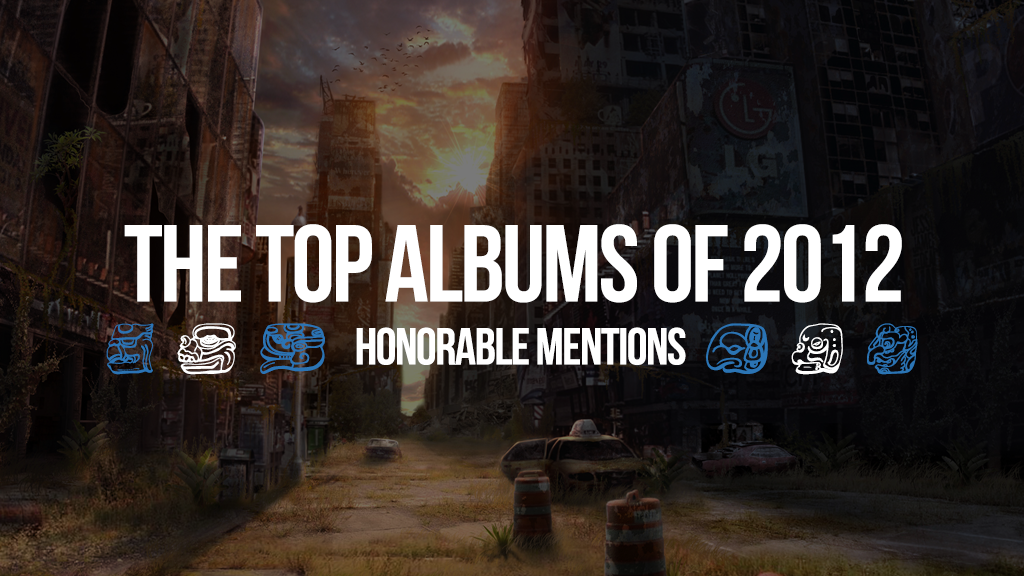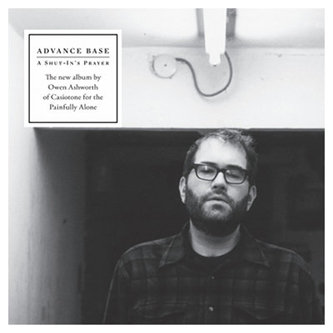
Advance Base
A Shut In’s Prayer
[Orindal]
When I interviewed Owen Ashworth earlier this year, he noted that, for the first time, this album had been created largely with a full band and that even when he was working alone he was seeking to emulate that openness. Even lyrically throughout much of A Shut In’s Prayer, Ashworth seems to be focused on characters who are far more open than those often encapsulated in the Casiotone for The Painfully Alone songbook. The narrator of “Riot Grrrls” expresses wistfulness toward times long past, the man behind “Summer Music” pines for a lost love. At least relatively speaking, these are characters of action, instead of the cloistered homebodies that Ashworth painted in his previous records. It’s a welcome change but one that doesn’t sacrifice the great attention to detail that Ashworth bestows upon his tracks stories and characters. In their own way, they’re little short stories imbued with the detail of the years of work that authors often bestow upon them, and there’s an argument to be made that this is Ashworth’s best collection of stories yet.
– Colin Joyce

Antony and The Johnsons
Cut The World
[Rough Trade]
I hesitate to say there are only a few minutes of original material on Cut The World. Yes, the (absolutely stunning) album-opening title track is technically the only “new” song on the album. But all of the compositions here are brand new: live, lush, and grandiose arrangements performed alongside the Danish National Chamber Orchestra. And as huge a sound as that orchestra provides, Antony still manages to steal the show, cutting loose on his vocals in a way rarely heard in his studio performances.
“I Fell In Love With A Dead Boy” somehow condenses the emotional arc of a tearjerking film into less than five minutes; “Another World” is pre-apocalyptic melancholy at its finest; and “The Rapture” is just plain engulfing, as everything and everyone around you beings to fall. Cut the World is one of the most elegant, poignant musical statements of 2012. Just beware; if this is your introduction to Antony and the Johnsons (as it was for me), after one listen you may never be able find the original studio versions of these tracks quite sufficient enough.
– Weston Fleming
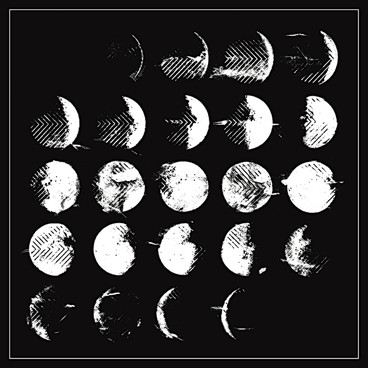
Converge
All We Love We Leave Behind
[Epitaph]
It would have been understandable had Converge not been able to give Axe To Fall a worthy follow-up. Their massively successful 2009 effort was a magnum opus of sorts for the band as a collaborative studio entity, and had they attempted to duplicate it, the results likely wouldn’t have been as good. So they don’t. In fact, with All We Love We Leave Behind, Converge go in the complete opposite direction, making arguably their most straightforward and live record since Jane Doe, and are all the better for it. Stripped down to its bare-bones essentials, it’s basically just the sound of four guys in a room – but those four guys happen to form one of the greatest hardcore bands of all time.
And they remain as inventive as ever, as evidenced all over All We Love We Leave Behind. “Aimless Arrow,” “Sadness Comes Home,” and “Coral Blue” all bring in elements that don’t normally exist in the Converge canon, but none of them stray enough from the band’s strengths to go awry. Their strong sense of melody is often the secret weapon, but, in contrast with these genre-hopping highlights, the rest of the album contains plenty of abrasive material for fans of classic Converge to enjoy as well. It’s more of a return to basics than a proper follow-up to the monstrosity that was Axe To Fall, but when a band can still find ways to be inventive with their most basic components, as Converge does on All We Love We Leave Behind, how can you complain?
– David Wolfson
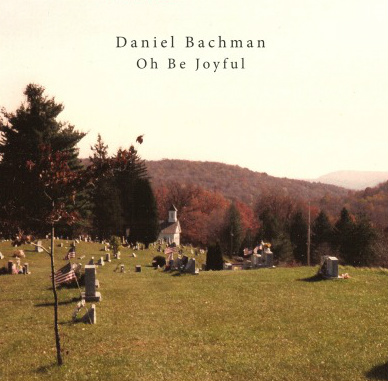
Daniel Bachman
Oh Be Joyful
[One Kind Favor]
This year, like every year of late, was touted as the “return of the guitar,” a rockist fantasy world where their boys must take the musical world back from those youngsters with the sideways caps and their hippity hop. Daniel Bachman certainly might fit within their argument if not for how far his instrumental musings lie outside of the purview of traditional rockist hotspots. Bachman has his own sort of revivalism going on, but it’s aimed squarer at the acoustic guitar meanderings of American Primitivists like John Fahey and Jack Rose. But where Bachman makes his departure from that sound, and ultimately where the success in Oh Be Joyful lies, is in the ecstatic, almost religious nature of these songs despite their solely acoustic composition. These are ragas, hymns, downtrodden meditations on the very nature of the organic nature of acoustic guitar composition and through this Bachman conjures the sound and very life of the land itself. It’s the lifeblood of Americana, the sound of open fields and rolling highways but reduced to its barest part, a wholly expressive mess of intertwining whinnies of acoustic guitar.
– Colin Joyce

Elvis Depressedly
Mickey’s Dead
[Self-Released]
Mat Cothran has done the Elliott Smith-indebted lo-fi home-recording for a few years now under his Coma Cinema moniker, but Elvis Depressedly has remained the home of his more bizarre, even at times subversive, recordings. Even Goner, his most, well, coherent release under that moniker, lent more to the tunes’ decidedly fucked fidelity than his Coma Cinema albums ever had. Mickey’s Dead was a bit of an outlier in that tradition, even if it seems to foreshadow what Cothran’s headed for in the future. Hitting a sweet spot with his admittedly broken equipment, Mickey’s Dead found Cothran at his most honest and heartbreaking. Whether channeling the spirits of Hank Williams’ loner ballads on the title track, or the final insular wisps of Casiotone for The Painfully Alone’s drum machine driven character studies on “A Bible In A Bath Of Bleach,” Cothran shows himself a songwriter far beyond his years. With two albums in 2012 and a new rock record on the horizon for early next year, it’d be easy to admire his prolificacy or get lost in the deluge, but Mickey’s Dead represents an easy entry point to the mind of one of the most affecting and warped songwriters of our time.
– Colin Joyce
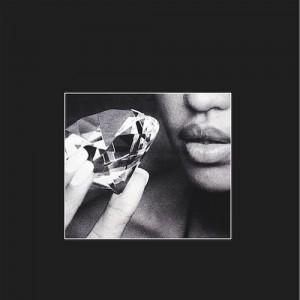
Fort Romeau
Kingdoms
[100% Silk]
Michael Norris’ debut as Fort Romeau on 100% Silk, Kingdoms, is staggering in its specificity–sonically, atmospherically, and emotionally. The record slides seamlessly between Chicago house, electro, disco, and Detroit minimal with a thick syrupy, sleep-clogged atmosphere dripped over all of it. It’s a deeply immersive record, its dark and cool synth waves almost palpable enough to touch. There’s floor heaters like the diced jack house of “Jack Rollin'” as well as mattress-soft Italo mood pieces like “Nights Bridge.” And through all of it Norris displays a heightened sense of songwriting that gives these songs some major legs, extending well past the surface pleasures of gooey hooks and hyper-sensual textures. “I Need You” runs circles around the forever-forward deep house template, jumping from one neon purple watered pool of ambiance to the next before a slippery 4/4-driven race to the finish.
– Will Ryan
Clams Casino has a lot to answer for. His inexorable rise from Limewire-browsing student to white-hot production wizard over the past two years has been fully deserved, with his uniquely lush brand of bangers appealing to everyone from diehards to those with only peripheral awareness of the ‘beat’ scene. But in this calendar year he was comfortably second best, outclassed by a Bay Area duo who gently but emphatically pushed the entire genre forward over the course of 14 tender tracks. Collection 1 works neatly as a counterpoint to more headstrong and muscular fare, a masterstroke of brevity that pays as much heed to ambient soundscapes as traditional hip-hop structure. The punchy snares and skittering hi-hats remain present, but play second fiddle to the kind of ivory-tinkering that hints at a level of trained musicianship amongst the pair that bely many of their peers, all sat atop a bed of lush textural detail and faded vocal samples. It all flutters by with the faintest of touches, “Chuch” and “I Miss Y’all” are, at a push, the finest cuts, carrying an emotional resonance rarely found in this field. In keeping the impetus on the cloud as much as the rap, Friendzone’s sublime Collection 1 pretty much set the bar for instrumental mixtapes this year, and can be picked up for nothing on their Bandcamp – no excuses then.
– Gabriel Szatan
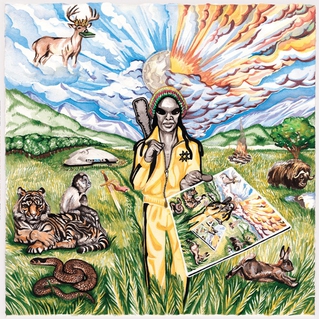
Guardian Alien
See The World Given To A One Love Entity
[Thrill Jockey]
For most bands, releasing your debut album in the form of a single 37-minute song might be viewed as being intentionally difficult. But for Guardian Alien, the latest project from ex-Liturgy drum maven Greg Fox, it’s just business as usual. There’s really no other way of taking in their debut effort, See The World Given To A One Love Entity, than as a whole. It’s a 37-minute display of instrumental prowess and tight interplay that doesn’t really let up; it just flows from section to section of hypnotic psychedelia. The first part, anchored by Fox’s inimitably creative timekeeping, achieves a unique kind of heaviness through the use of instruments such as the shaahi baja. But then, around the halfway point of the album, it takes a turn towards the pastoral with a series of sampled field recordings, before finally returning at the end to the hazy psychedelia of its first half. It has its moments for sure, but ultimately it’s a journey meant to be taken in one sitting; like a post-rock album with movements, but achieving something entirely different and unique with its sound. Nothing else I’ve heard this year does anything quite like it.
– David Wolfson

Hip Hatchet
Joy and Better Days
[Gravitation]
Joy and Better Days is the second album from singer songwriter Philippe Bronchtein under his moniker Hip Hatchet, and shows impressive growth from 2011’s Men Who Share My Name. Bronchtein knows the economy of words and how to use them most effectively, with each of these 12 songs unfurling naturally and vividly into vibrant and evocative paintings. His ability to condense atmosphere, character traits and emotions into simple verses comes from a natural talent with metaphor combined with a rich and versatile voice. Joy and Better Days is all about various experiences on his travels around America, and may well be best experienced while on the road; the warm textures provided by the organic folk music provide the ideal aural accompaniment for staring out the window at wide expanses while contemplating and sympathizing with Bronchtein’s refreshingly honest lyrics. Joy and Better Days is the kind of album that you have to cherish your time with, and in doing so you will be rewarded with a deeper and deeper appreciation of the craft that’s gone into the making of it with each listen.
– Rob Hakimian
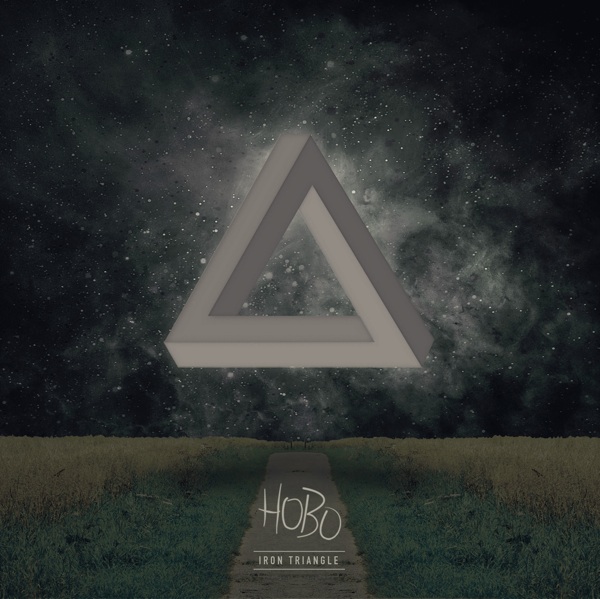
Hobo
Iron Triangle
[Minus]
Hobo is Canadian producer Joel Boychuk and his full-length debut for Richie Hawtin’s M-nus imprint is an ode to his formative years’ stomping grounds in Ontario near the American border. The title is derived from a railway junction in and around his hometown, but there isn’t a hint of nostalgia about Iron Triangle. Instead it’s a supreme mixture of Midwestern minimal techno at home on M-nus and Ricardo Villalobos-ian tech house, all supple kick, heaving, toiling drones, and clamped percussive samples fleshing out the sounds and atmospheres of the titular railway, but with an almost futuristic bent. “Camlachie” feels like you’re careening through metal-plated subterranean tunnels and the cyberpunk vocal sample on the title track is the sound of a robot boogying. The record is dark and dank, reaching near Demdike Stare levels of blackened moodiness, it’s also texturally immaculate, but it’s floor ready from the get go, its build-and-release hooks squeezed firmly between clenched teeth.
– Will Ryan

